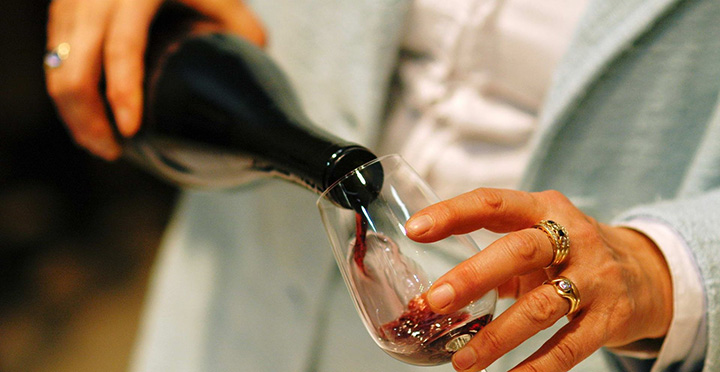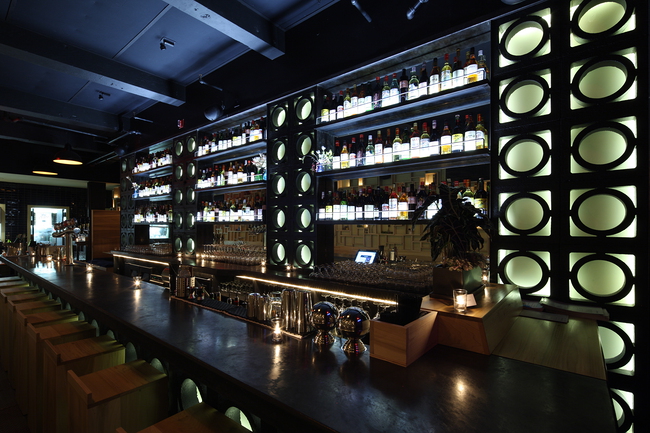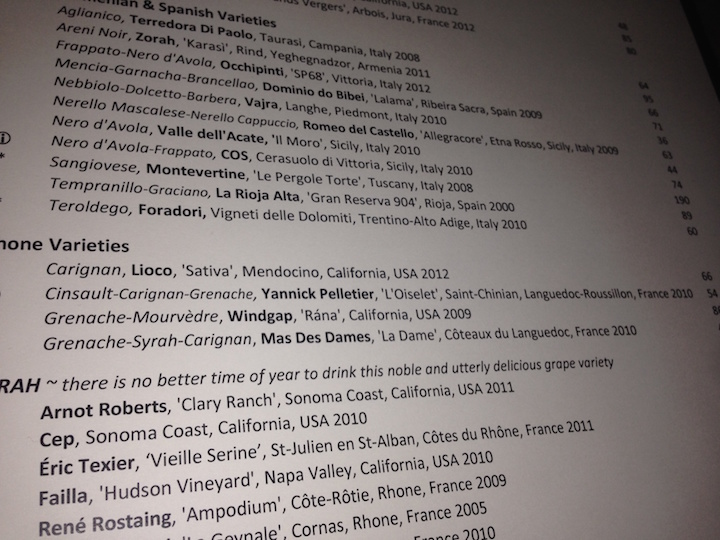
One mile east of Washington, D.C.’s popular 14th Street corridor sits Bloomingdale, a neighborhood that's quickly gentrifying. While Bloomingdale isn’t the city’s trendiest neighborhood -- nor its safest -- the area is quite popular among the 20- and 30-somethings who reject downtown Washington’s pinstriped power suits. Tattoos, beards, and skinny jeans abound.
The drinking choices reflect the neighborhood's ethos.
There’s Boundary Stone, which might be the city’s best dive bar. There’s Showtime Lounge, a cash-only spot that offers Natty Boh and Tecate for $3 per can and has a free jukebox loaded with vintage soul and R&B. The list of Bloomingdale’s hipster hangouts goes on.
So when Red Hen, a 50-seat Italian restaurant with $15-dollar appetizers and $24-dollar entrees opened its doors two years ago, many wondered if the restaurant could survive. The prices seemed better suited to the city’s tonier neighborhoods.
But it quickly became one of the city’s hottest restaurants.
Two of Red Hen’s three owners, beverage director Sebastian Zutant and chef Michael Friedman, last worked at Proof, one of D.C.’s top wine bars. So that the restaurant took wine seriously wasn’t surprising. But few could have predicted the buzz that Zutant’s quirky list would generate.
"Orange wine? Anything co-owner Sebastian Zutant wants us to drink more of, count me in,”wrote Tom Sietsema of the Washington Post. “Intriguing wines at user-friendly prices make this bustling newcomer in Bloomingdale worth crossing town for, but so, too, does the relaxed Italian cooking from Michael Friedman."
From Sicily, Red Hen’s list offers wines from Arianna Occhipinti and Salvo Foti. From Slovenia, the list has several wines from Movia. Even Champagne from Jacques Selosse and Ulysse Collin is available. It’s a wine geek’s paradise.
It’s cliché to praise Patrick Cappiello’s wine program at Pearl & Ash (below right) in New York City. But if an oenophile had carte blanche to create the restaurant of her dreams, she’d save herself a lot of time by simply replicating the Bowery hotspot.

As Pete Wells wrote in the opening paragraph of his glowing New York Times review, “Going to Pearl & Ash without opening a bottle or two is like buying a chocolate bar and not unwrapping it. Since it opened… the restaurant has become the city’s most exciting place to drink wine.”
The reviews of both restaurants are telling. By leading with wine in a creative and unintimidating fashion, Red Hen and Pearl & Ash were able to swiftly garner critical acclaim. Both have become destination restaurants, with food and service that’s obviously up to par with the wine.
When David McCarus joined FIG in Charleston, South Carolina, as the restaurant’s general manager and beverage director in 2012, he knew that wine could have a dramatic impact on a restaurant’s reputation. Previously, he worked at A16 and Heirloom Cafe in San Francisco.
“When I went to FIG, I went in there with this idea, like, ‘OK, this is a restaurant that's already executing. It's got good service. The food's phenomenal. What's the way to take the restaurant to the next level? No brainer; it's wine,” McCarus explained.
His strategy worked. In 2014, the wine program at FIG was a James Beard Award finalist, putting the Charleston restaurant in the company of Blackberry Farm, The Little Nell, Bar Boulud, and A16. McCarus left FIG shortly afterwards to expand his wine distribution company, which launched the previous year.
(The wine list at Fig)
FIG was certainly held in high regard before McCarus joined the team. The chef, Mike Lata, won a James Beard Award in 2009 and has competed on the Food Network’s “Iron Chef America.” But there’s no denying that under McCarus, FIG became a destination restaurant. That success can be directly attributed to the wine program.
“Introducing people to new wine regions and new grape varieties is huge,” McCarus continued. “[Let’s say] you go to five restaurants. All have great service, all have great food, and all have a solid wine list. But when you leave one of them, you think ‘wow, not only were all those things great, but it was so cool to learn about that white wine from Campania,’ or ‘I never knew that California wine could taste that good; I used to only drink Sancerre.’ That little tick will make people remember you. There are so many great restaurants out there, and that will separate you from all of them.”
Restaurants that focus on wine also benefit from more industry support.
“FIG became the one place where you and your buddies could pop in and sit at the bar after studying wine all day and taste through a glass list of classical varieties, like trousseau from the Jura and true Sicilian frappato,” McCarus said, while talking about the Court of Master Sommeliers. He credits local chefs, sommeliers, and servers with much of the “grassroots” support that propelled FIG’s popularity. A restaurant couldn’t hope for better ambassadors.
Danny Fisher, the general manager and beverage director of Ripple, a wine-focused retreat in Washington, D.C., helps explain why industry evangelism is so important.
“The wine program is a huge reason why I go to any restaurant. And it’s always good to be a place where industry people want to go,” he said.
“One of the most common questions I get asked is, ‘Where do you like to eat?’ And I assume everyone else in the industry gets asked that same question,” Fisher continued. “I want to go somewhere that has a good wine list and I like to taste new things. It's not going to be my sole reason for going. But if a place doesn't have a good wine list, I'm probably not going to go back, no matter how good the food is. I have the places that I name -- it’s very, very few -- and I really promote those places.
Ripple is the closest thing D.C. has to Pearl & Ash. The extensive wine list is geeky yet approachable and the markups are reasonable. Like Cappiello, Fisher even sabers an occasional bottle of Champagne. And Ripple is a popular industry hangout.
Last February, Ripple’s chef, Marjorie Meek-Bradley, was named a semifinalist in the James Beard Award's "Rising Star Chef of the Year.” On month later, Food & Wine listed Meek-Bradley as one of just ten contenders for the mid-Atlantic’s best new chef. Meek-Bradley is supremely talented and the recognition is certainly deserved; she's one of D.C.'s best chefs. But one can’t help but wonder if she would have been noticed so quickly if it weren’t for Ripple’s wine program.
Countless restaurants have great food. Plenty also have great service. And more open each day. By imaginatively leading with wine, a restaurant can become a destination -- even in a neighborhood where one expects dive bars with canned beer and killer jukeboxes.
David White, a wine writer in Washington, D.C., is the founder and editor of Terroirist.com.











